Load-Balanced Data Aggregation Trees in Probabilistic Wireless Sensor Networks
Problem Definition
Problem Description:
In Probabilistic Wireless Sensor Networks, constructing efficient and reliable Data Aggregation Trees (DATs) is crucial for gathering and aggregating data. However, existing techniques primarily focus on constructing DATs under the Deterministic Network Model (DNM) which may not accurately represent the real-world conditions of wireless sensor networks.
One key challenge in constructing DATs under the Probabilistic Network Model (PNM) is the presence of probabilistic lossy links, which can disrupt data aggregation and affect the overall performance of the network. Additionally, existing techniques do not take into account the load-balanced factor when constructing DATs, which can lead to uneven distribution of data traffic and energy consumption among sensor nodes.
Therefore, there is a need for a new technique that addresses the challenges of constructing Load Balanced Aggregation Trees (LBDATs) under the Probabilistic Network Model while considering load balancing to ensure efficient data aggregation and optimal network performance.
By incorporating load balancing into the construction of DATs, we can improve the reliability, scalability, and efficiency of data aggregation in Probabilistic Wireless Sensor Networks.
Proposed Work
The proposed work titled "Constructing Load-Balanced Data Aggregation Trees in Probabilistic Wireless Sensor Networks" focuses on the construction of Data Aggregation Trees (DATs) in wireless sensor networks under the Probabilistic Network Model (PNM). While existing research has primarily focused on constructing DATs under the Deterministic Network Model (DNM), this project introduces a new technique that takes into account the load-balanced factor, a crucial consideration in realistic wireless sensor networks with probabilistic lossy links. The technique presented in this project addresses the Load-Balanced Maximal Independent Set (LBMIS) problem, Connected Maximal Independent Set (CMIS) problem, and the LBDAT construction problem, offering a more efficient and comprehensive approach to constructing DATs. By overcoming the limitations of previous techniques, this project aims to provide a novel and effective solution for data aggregation in WSNs. This work falls under the categories of NS2 Based Thesis Projects and Wireless Research Based Projects, specifically within the subcategory of WSN Based Projects.
Application Area for Industry
The project of "Constructing Load-Balanced Data Aggregation Trees in Probabilistic Wireless Sensor Networks" can be applied in various industrial sectors such as agriculture, environmental monitoring, smart cities, industrial automation, and healthcare. In agriculture, this project can be used to gather data on soil moisture levels, temperature, and crop health, allowing farmers to make informed decisions for optimal crop yield. In environmental monitoring, the project can help in tracking pollution levels, weather patterns, and wildlife conservation efforts. In smart cities, the project can aid in traffic management, waste management, and energy efficiency. In industrial automation, the project can optimize processes, monitor equipment health, and enhance overall productivity.
In healthcare, the project can assist in remote patient monitoring, medical equipment tracking, and ensuring patient safety.
The proposed solutions in this project address specific challenges faced by industries in terms of constructing efficient and reliable Data Aggregation Trees (DATs) in wireless sensor networks. By considering load balancing and probabilistic lossy links in the construction of DATs under the Probabilistic Network Model (PNM), the project aims to improve data aggregation efficiency, reliability, and scalability. The benefits of implementing these solutions include enhanced network performance, balanced data traffic distribution among sensor nodes, optimized energy consumption, and overall improved data aggregation process in Probabilistic Wireless Sensor Networks. This project's innovative technique offers a more comprehensive approach to constructing DATs, overcoming the limitations of existing techniques and providing a novel and effective solution for industries utilizing wireless sensor networks.
Application Area for Academics
The proposed project on "Constructing Load-Balanced Data Aggregation Trees in Probabilistic Wireless Sensor Networks" holds significant relevance for MTech and PHD students conducting research in the field of wireless sensor networks. MTech students can use the code and literature of this project to gain insights into innovative research methods for constructing efficient Data Aggregation Trees (DATs) under the Probabilistic Network Model (PNM). This project offers potential applications for simulations and data analysis methods that can be applied in their thesis work or research papers. PHD scholars can leverage this project to pursue advanced research in WSNs, focusing on the challenges of probabilistic lossy links and load balancing in data aggregation. By incorporating load balancing techniques into DAT construction, researchers can enhance the reliability, scalability, and efficiency of wireless sensor networks.
This project opens doors for exploring new avenues in the intersection of networking and data aggregation, providing a platform for cutting-edge research in WSNs. In the future, this project holds potential for further development and exploration in the optimization of data aggregation techniques under probabilistic network conditions, offering a reference point for future scope in WSN research.
Keywords
Load-Balanced Data Aggregation Trees, Probabilistic Wireless Sensor Networks, Data Aggregation, Probabilistic Network Model, Load Balancing, Wireless Sensor Networks, Network Performance, Data Traffic, Energy Consumption, Wireless Networking, Connectivity, Maximal Independent Set, NS2, WSN Projects, Wireless Research, Data Aggregation Techniques, Efficient Data Gathering, Reliable Data Aggregation, Load-Balanced Approach, Sensor Nodes, Aggregation Efficiency, Scalability, WSN Thesis Projects
| Shipping Cost |
|
No reviews found!













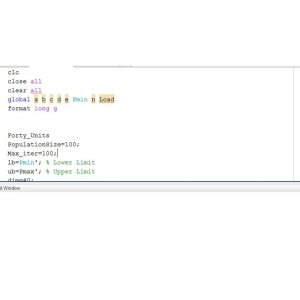
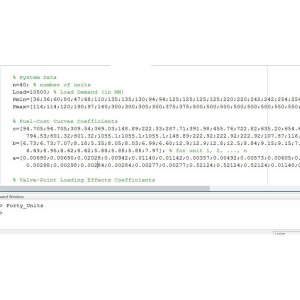

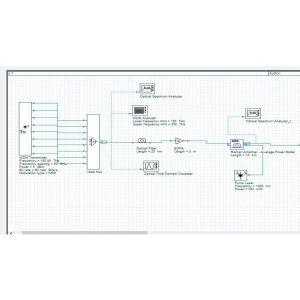
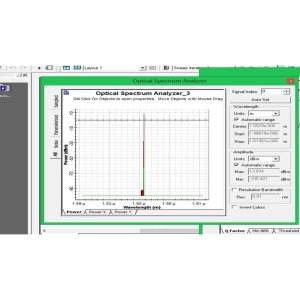


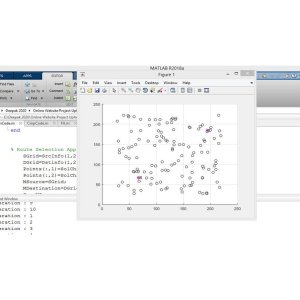
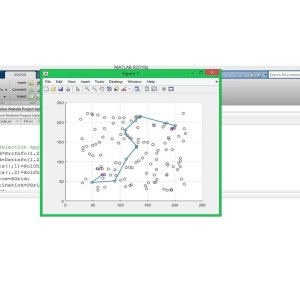































No comments found for this product. Be the first to comment!